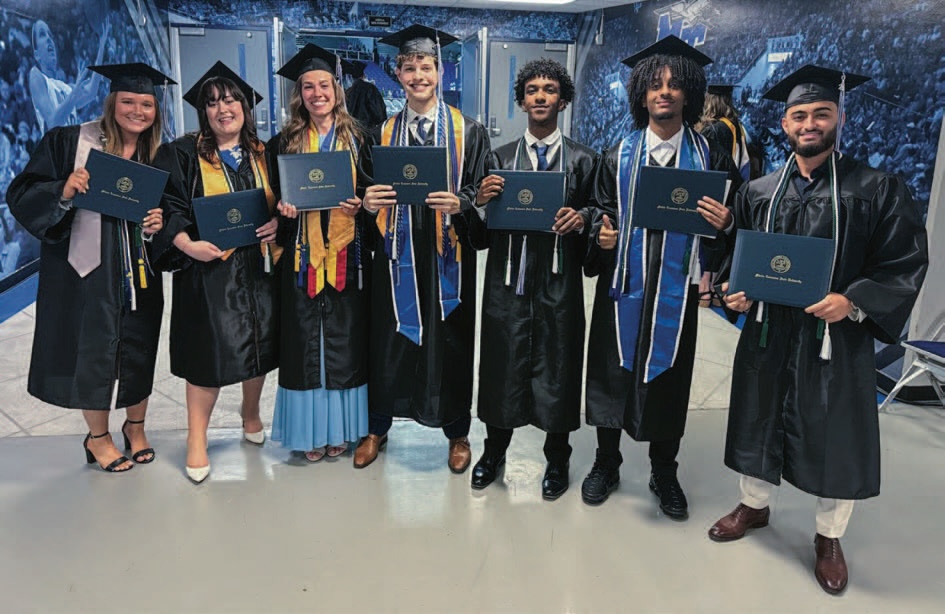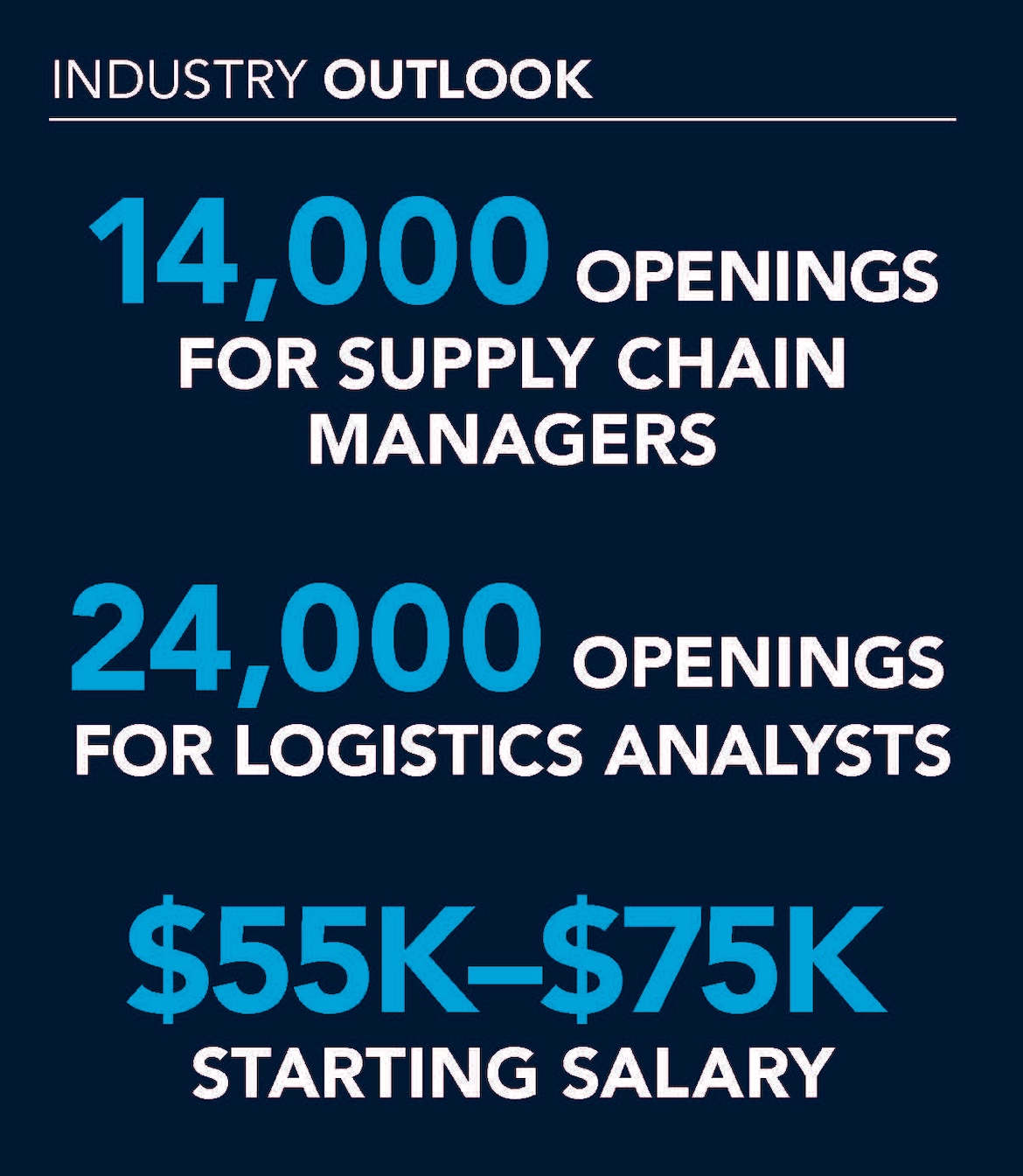
4 minute read
Center for Supply Chain Mgmt. and Sustainability
FORGING THE FUTURE AT MTSU
MTSU’s Department of Management is now home to the newly established Center for Supply Chain Management and Sustainability, led by director Richard Tarpey. The center plans to forge the future of supply chain education, research, and industry engagement in middle Tennessee.

In April, the department—in conjunction with the Supply Chain Management Student Organization—hosted the second annual Supply Chain Summit with Geodis Americas CEO Mike Honious as the keynote speaker.
The center’s mission is to cultivate supply chain excellence and champion sustainable practices through collaboration with students, faculty, and industry leaders. The vision for the center is to become a nationally recognized nexus for inventive supply chain solutions, shaping tomorrow’s professionals and elevating the industries of the region. The center will significantly enhance the program’s cutting-edge education and training, tackle pressing industry challenges through research, and fortify industry ties with local companies.
Tarpey will be supported by several Supply Chain Management faculty members, who include Senali Amarasuriya, Bukola Bakare, R. Bryan Kethley, Curtis Sawyer, Cliff Welborn, and Jinfeng Yue.
“This center will serve as a nexus of knowledge, collaboration, and experiential learning, positioning the Jones College of Business at the forefront of supply chain education, research, and industry engagement,” Tarpey said.

GROWING STUDENT AND INDUSTRY INTEREST
The Department of Management launched the undergraduate degree in Supply Chain Management in 2021 after multiple years with a concentration where student interest continued to increase. Interest rose so much that the department also launched a graduate degree two years ago to meet the demand of not only students, but industry as well.
Likewise, the supply chain industry in the Midstate continues to grow. O*Net Online estimates over 14,000 job openings for supply chain managers and over 24,000 job openings for logistics analysts in the next eight years, with starting salaries ranging from $55,000 to $75,000.
Last spring, the program hosted its third Midsouth Supply Chain Summit on campus, drawing a record attendance of students, alumni, faculty, and industry partners who heard guest speakers from the industry, sat in on supply chain sessions and panels, and attended networking events.
“We’re up over 75 partners in the industry that are in some way, shape or fashion partners with our programs, whether that be through guest speaking, attending our events, doing brown bags, and more,” Tarpey said. “So we have a lot of student engagement opportunities.”
INDUSTRY COLLABORATION CRITICAL

MTSU wants to collaborate with industries to solve supply chain problems, Tarpey said. “There’s a great opportunity out there.”
The center has already developed a new initiative called the Synergy Program, which features two components—Synergy Experience and Synergy CollabLab—providing students with real-world experience working with area companies on their supply chain and logistics challenges.
• Synergy Experience—Local and regional companies will take three to four students per semester and provide work experience and projects focusing on a faculty-curated curriculum as an independent study class. HCA-HealthTrust and Geodis are the first confirmed participants.
• Synergy CollabLab—Local and regional companies will provide real-world projects for students to work on as an independent study, with Mars Petcare, HCA, Assurant, and Old Time Pottery having participated already.
In a recent partnership, Franklin-based Mars Petcare wanted the University’s help with solving a logistical problem regarding products being shipped from Asia and Europe to the company’s five distribution centers in the U.S. Some of Tarpey’s students spent the entire spring semester in 2023 doing an independent study class and presented their proposed solutions to company executives, who are considering using some of their findings.
“Supply chain students can learn from textbooks; they can learn from faculty members; they can learn from case studies,” Tarpey said, “but being out working with a company engaged on a project is valuable real-world experience.”
The center aims to cultivate the next generation of leaders equipped with the expertise and practical skills necessary to navigate the complexities of modern supply chains, while providing them with resumebuilding experiences during their time on campus.










